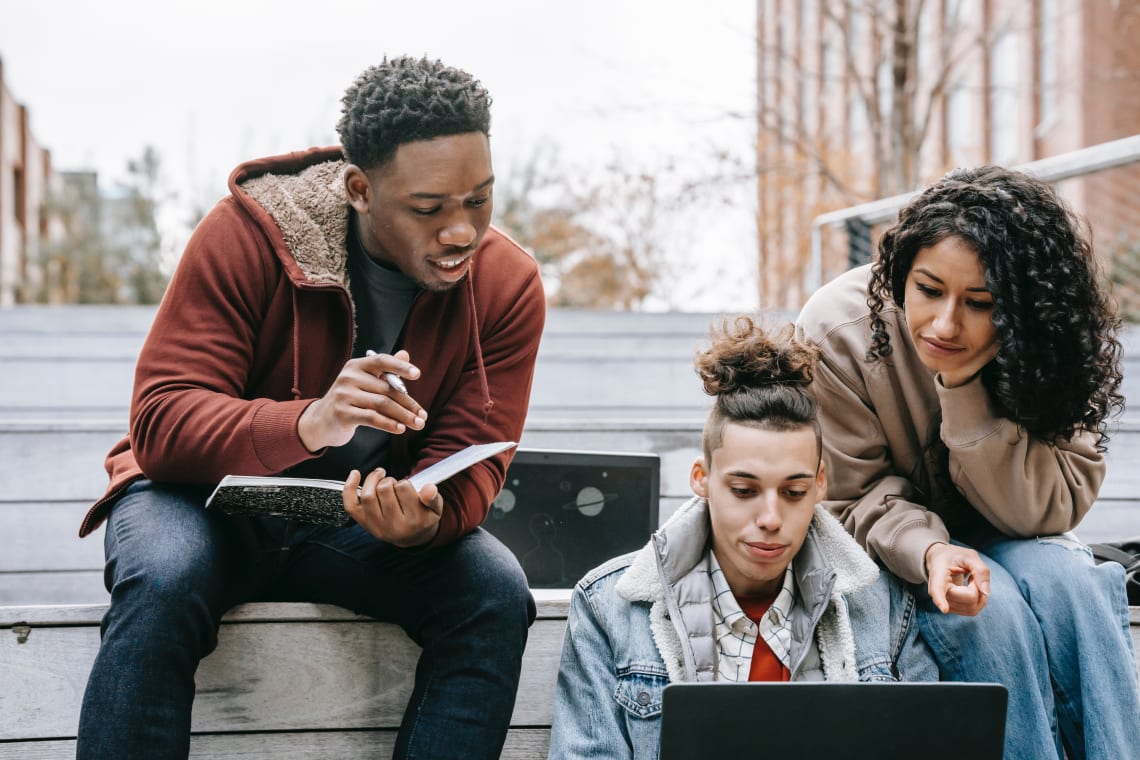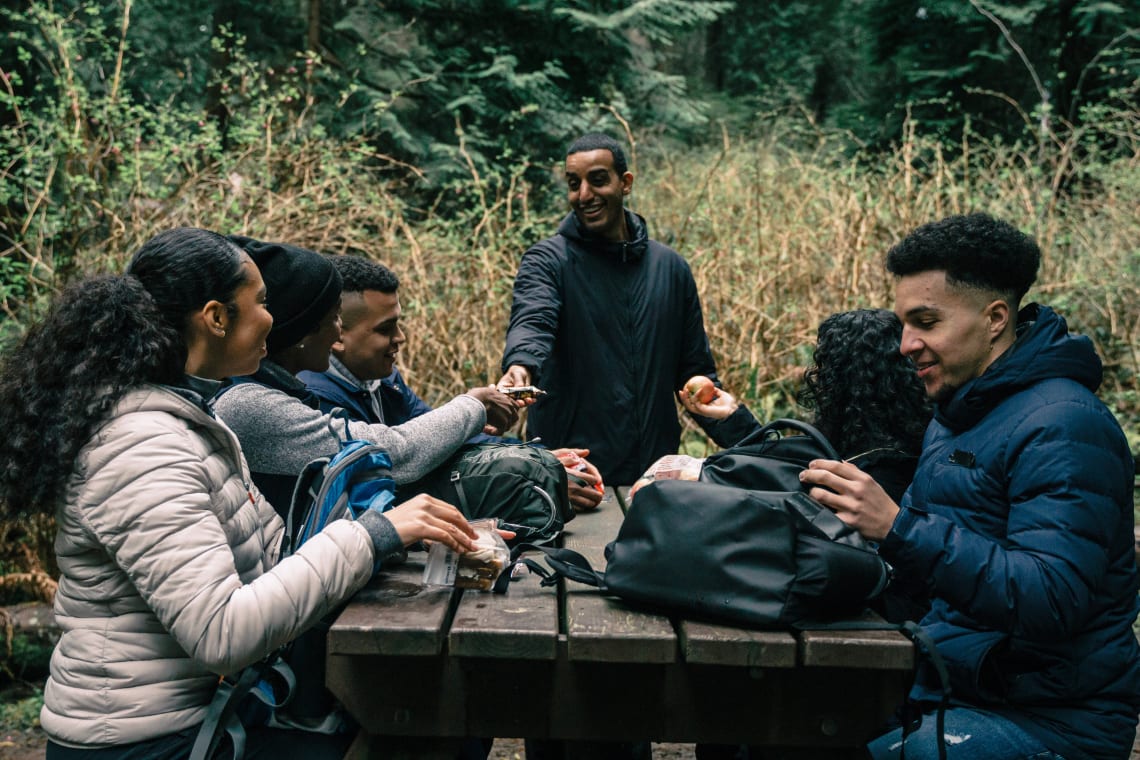How long does it take to learn a language?
How long does it take to learn a language, and what are the key factors that determine how fast you learn a foreign language? Here is my experience and advice.
5min

Learning a foreign language unlocks endless possibilities. Multilingualism allows for better job opportunities and broader access to information, but it also gives us better social, global and communication skills.
These are all nice to have benefits, but in my opinion the best reason to learn a foreign language is that it makes life so much more interesting. Mastering other languages not only allows you to see the world, but to see it through other eyes.
You will gain other perspectives on life and explore new sides of yourself. Also, you will be able to connect with locals on a much deeper level and to make friends everywhere when you travel.
I have a great passion for languages as they are the best way for me to really interact with people from other cultures.
How long does it take to learn a new language?

The basics to learn a new language can be acquired quite fast. Introducing yourself, ordering food, asking for the way, etc. is a good start and will definitely help you when you’re traveling to another country.
Using an online program or taking classes for a few weeks to months might be enough for you to reach a basic to conversational level in your target language. If you really want to become fluent, though, you will have to put in more time and effort to discover your favorite language learning method.
How long does it take to become fluent?
Learning a language fluently takes a lot longer. But what does fluency actually mean?
To speak a language fluently and exchange yourself meaningfully with native speakers, you need to first acquire not only linguistic skills, but above all also display a certain sense of cultural awareness!
How long it takes to become fluent in a language depends on three important factors:
1.How different the language is from your native language
First, you need to consider the distance, also referred to as linguistic or cultural gap, between your native and your target language.
For instance, Spanish and Portuguese have a similar set of vocabulary, the syntax is quite related as well and once you manage one of these languages, the pronunciation of the other one is easy to pick up, too.
On the other hand, if your mother tongue is English, and you are learning your first ever roman language (Spanish, Portuguese, Italian or French), it will probably take you a bit longer.
A different alphabet or writing system to the one you know, like in Japanese, will complicate the process, too. To sum up: The more distance between mother tongue and target language, the more time and effort must be put in.
2.Your personal background
Secondly, your personal background has a massive influence when it comes to learning a new language. What’s your experience with language learning, have you developed language learning methods in the past?
Maybe you have grown up bilingually or have studied foreign languages in school since you were a child. If this is the case, and if you already master 3 or 4 different languages to a good extent, it will be a lot easier to teach yourself a new one, as you already know language learning techniques.
3.How much can you immerse yourself in this language?
The last and most important factor to learn a foreign language has to do with your life circumstances and language immersion.
The more time you spend speaking, listening, and living the language you are learning, the quicker you will pick it up. The more you interact and share with native speakers and the more you expose yourself to the new language, the more naturally you will learn it.
Taking language classes once a week for an extended period will not give you nearly as much confidence as living or working in the country where your target language is spoken. This is the reason, why I recommend using Worldpackers to reach you language goals. It's the best way to learn a foreign language and to gain cultural awareness as well.
Let’s look at an example about learning a foreign language

The Foreign Service Institute has established a list that indicates the approximate time it takes an English speaker to learn a particular language. The list covers 5 categories ranging from languages “closely related to English”, like Spanish, to “exceptionally difficult languages for native English speakers”, like Arabic for example.
According to the list, a native English speaker needs about 600 hours to learn Spanish. However, if you only have 2 hours of language classes a week and spend another 2 hours on homework, which makes 4 hours a week, it will take you 150 weeks to reach your goal. That is about 3 years.
But if you live in Spain or South America and spend your daily life with native speakers, you expose yourself to the language several hours a day and reach your goal much faster.
Cultural immersion is the most powerful among language learning techniques.
My language learning tips & advice on how to learn a new language fast

Start with the basics
If you know some language learning techniques, you can do this by yourself. It not, try an online course.
Immerse yourself in the culture:
Listen to music or podcasts or watch your favorite movie in your target language. It will make you familiar with its sounds and pronunciation.
Get reading
Once you know the basics, read a book in your target language, and write down all the new vocabulary.
Did you know there are bilingual books, made exactly for this? On the same page, you will find an English version and another language’s version, and you can immediately look up phrases you don’t understand.
My biggest advice
Travel to a destination where your target language is spoken. Still, I recommend knowing the basics before.
Use Worldpackers
To meet people who master your target language. You will get better faster than you thought was possible.
Since 2014, Worldpackers is a global community for aware travelers and welcoming hosts that connects thousands of unique experiences, promoting personal development and world changing through volunteer jobs. You can help the world become more sustainable while you visit different cultures.
Check out 15 travel experiences to help you learn spanish for free
Don’t be afraid
People will like your foreign accent. No one judges you for making mistakes. Just try and improve.
Read more about my favorite language learning techniques in my article on how to learn a language naturally while travelling and have a look at Gabby's language immersion strategies for your next trip.
If you are still afraid, you should have a look these 40 lessons for those afraid of speaking new languages.
So, how long does it take to learn a language?
In the end, it's not easy to say how long it takes to become fluent in a language, as everyone is different and learns at their own pace, due to their language learning background, cultural background, and even their personality.
But one thing is for sure: The best way to learn a new language is studying the language abroad, interacting with locals, and totally exposing yourself. And of course, you will need a good amount of passion, dedication, but also patience with yourself.
Learning a language takes time, but you can do it much faster when you have fun! Keed reading and learning new languages, check out:












محمد
Oct 03, 2021
I need learn ingles
Jolly
Oct 11, 2021
Thank you for this explanation
محمد
Jul 31, 2022
السلام عليكم أتمنى ان احصل على فرصة السفر لاوربا ودراسة لغة احد دول اوربا والعيش فيها لان وطني غير صالحا للعيش وشكرا جزيلا
Lawrence View
Sep 08, 2022
great content.
Lawrence View Hotel
thomas
Jan 30, 2023
It is good idea